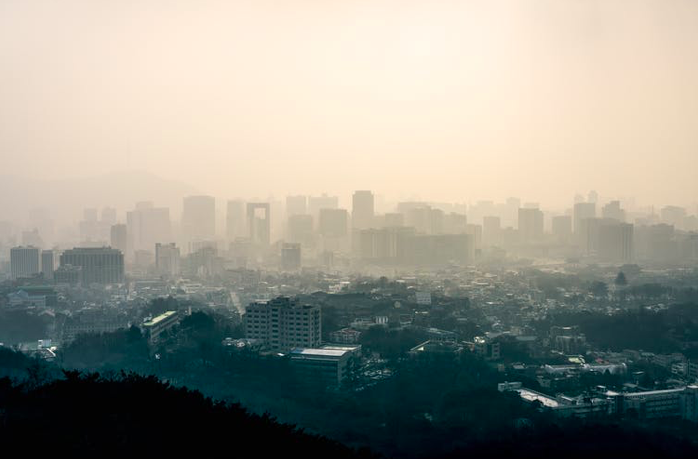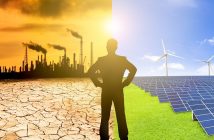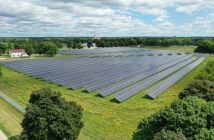Open Ed
- Globally, Covid-19 has generated much introspection about the need for a ‘great reset’ so we can ‘build back better’.
- But in South Africa, the major development finance institutions still seem wedded to mega industrial projects that rely on fossil fuels.
As 2020 comes to a close there is a lot being said about recovery, resilience and reimagining a better world. More than ever, the prospect of a new year seems to present an opportunity for a fresh start. For countries around the world the “great reset” has become a resounding mantra for change.
On the global stage, a United Nations resolution dealing with sustainable development is indicative of significant and fundamental changes to the understanding of development. A recent resolution states that “the process of recovery from Covid-19 provides us with a unique opportunity to build back better, so as to transform the world into one where humans truly live in harmony with nature”.
What does this mean for South Africa and how does a reimagined agenda for sustainable development permeate local economic growth and the developmental agenda?
Among the most obvious starting points are our development finance institutions (DFIs), which include the Development Bank of Southern Africa (DBSA) and the Industrial Development Corporation (IDC). These institutions and their approaches to financing development over the next decade are of critical importance. They have the power to effect positive, systemic and mass change at a critical juncture in the history of South Africa and the world.
The Covid-19 pandemic has reinforced the fault lines in our economic and social systems, while the need for a radical shift in how we handle environmental degradation, poverty and inequality has never been more important. There is significant opportunity for the state and private actors in our financial architecture to take bold and innovative steps to realise meaningful change for a more fair and sustainable society.
The question is, will they do so, how will they make these radical shifts and what are the factors that influence them?
Proper due diligence by DFIs when making decisions on project financing is a necessary first step. All projects must be assessed rigorously and should meet, at a minimum, environmental laws and regulations. It is, therefore, heartening to see that the DBSA recently launched a consultation draft for the fourth edition of its Handbook on Environmental Assessment Legislation in Sub-Saharan Africa, ensuring financial institutions have in-depth, up-to-date and accessible compliance information when assessing, approving and monitoring projects.
Environmental authorities and regulators must ensure they fulfil their mandate on environmental compliance and monitoring, and environmental impact practitioners must strive to meet the highest professional standards.
However, even if these processes are compromised or if there are breakdowns in institutional governance, DFIs can still make informed decisions about projects, ensuring best practice even if there are flaws in assessment and compliance, monitoring and enforcement.
Below, I explore this best practice and how DFIs have to seriously rethink their traditional approach to sustainable development, not only because of changing environmental considerations, but financial, legal and reputational risks as well.
First, financial institutions could insist on more meaningful community consultation, and wider and more rigorous public participation on proposed projects. In most instances, environmental impact assessment practitioners merely do a box-ticking exercise in respect of public participation, in which comments are submitted but not meaningfully addressed.
They could recommend conditions be imposed throughout the project life cycle to address environmental and social concerns. Where projects meet immense resistance from communities, financial institutions should think twice about their involvement and perhaps consider free, prior and informed consent as a standard for evaluation, even if it is not a legal requirement. DFIs could insist on comprehensive specialist reports as well as environmental assessments to ensure a proper interrogation of climate and cumulative impacts.
Second, DFIs could determine best practice according to their own values. Creating and implementing fossil fuel exclusion policies, gender policies and policies on information disclosure, transparency and grievance mechanisms would help guide them into a reimagined future. In fact, given the major climate victory of the Life after Coal campaign, which resulted in a court setting aside the environmental authorisation for the Thabametsi coal-power plant because of its climate impacts, one assumes most financial institutions would steer clear of fossil fuel projects. Such projects are no longer justifiable, legally, economically or from an environmental standpoint.
Policies on climate change and other environmental, social and governance issues provide a credible measure of a financial institution’s real commitment to such issues. This is illustrated by a report by the Centre for Environmental Rights titled Financing Fairly. Comparing six DFIs from across the world, the study assessed and graded them and their policies, and showed that some are fully capable of embracing best practice across a number of issues, which makes one wonder why some are failing so dismally.
Third, when financial institutions feel bound by national policy such as the National Development Plan, the Industrial Development Action Plan, the National Industrial Policy Framework and the Integrated Resource Plan, or political pressure in respect of development models that are out of touch with current economic and environmental considerations, DFIs could still leverage significant power.
Take the Musina-Makhado Special Economic Zone. A mega industrial and energy complex of heavy industries – including a 3,300 megawatt coal-fired power station, lime and cement plants and several mines – its impact on water and climate will be huge. It has already attracted opposition from civil society, residents, farmers and other affected parties. The project will completely undermine South Africa’s international climate commitments, unambitious as they are, and will expose financial institutions to risk in the form of stranded coal assets. Moreover, it is understood that funding for the project will “come from the national [special economic zone]fund, National Treasury and DFIs including the IDC and DBSA, while the provincial government has also budgeted a significant amount for infrastructure beginning in the next financial year”.
To what extent will DFIs who are asked to fund this project propose alternatives or impose conditions to address health and wellbeing and climate issues? Should they present alternatives to the Department of Trade and Industry and National Treasury to address the inherent risks? Surely, if South Africa and the DFIs are to meet the goals of the Paris Agreement and the Sustainable Development Goals, all alternatives should be on the table.
We need urgent and large-scale economic growth and development to address poverty and inequality, and ensure we build a more sustainable future. The question is whether our DFIs can devise and promote a different kind of development, a reimagined future, which places people’s health and wellbeing, and the environment, at the centre of its decision-making.
Our DFIs are in a unique position of having to lead our country and the region in a just transition. However, this requires courageous and innovative decision-making, and civil society will certainly be challenging them to take us boldly into a better future.
Author: Leanne Govindsamy

Leanne Govindsamy is the head of corporate accountability and transparency at the Centre for Environmental Rights (CER).











